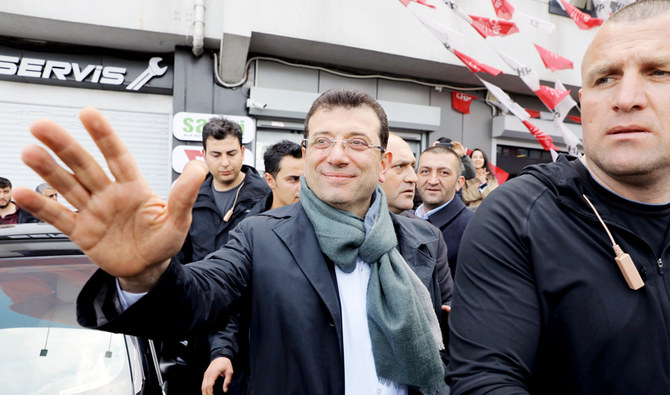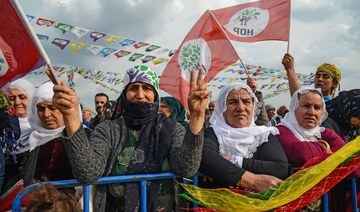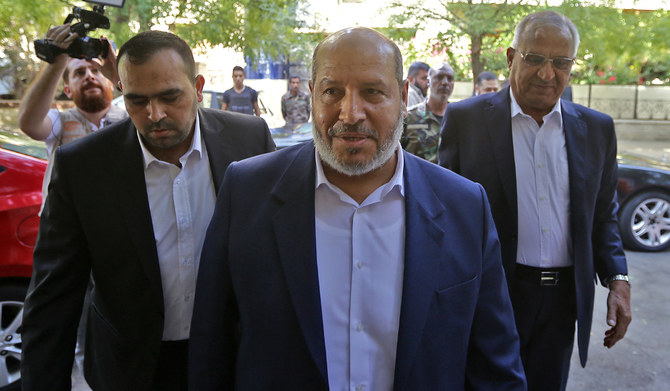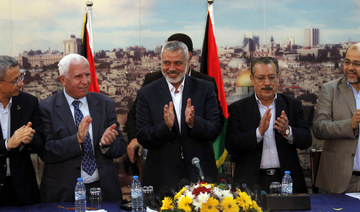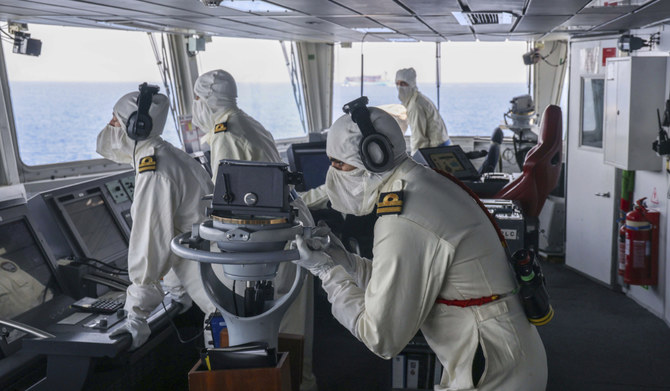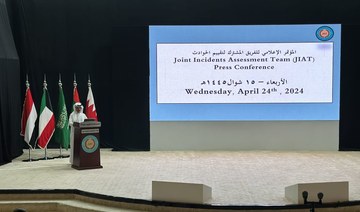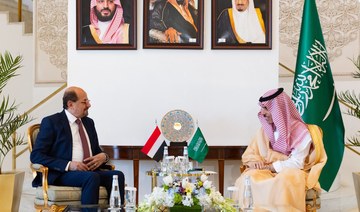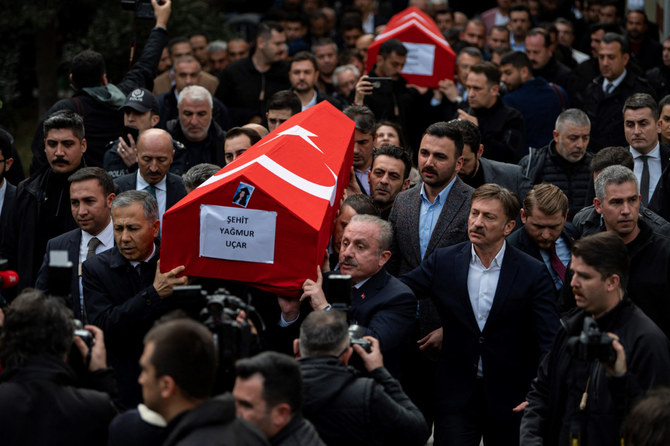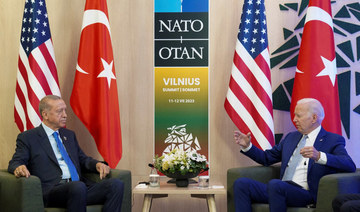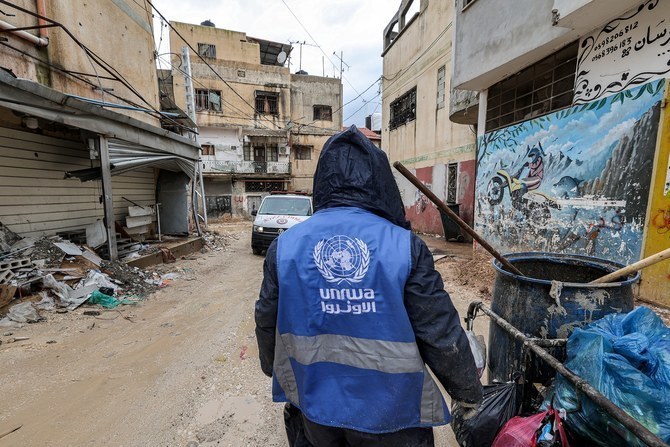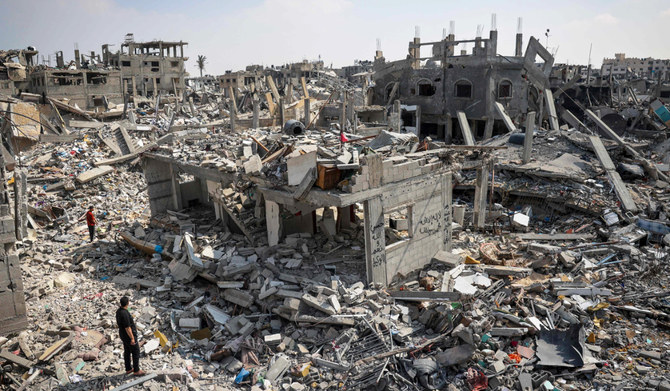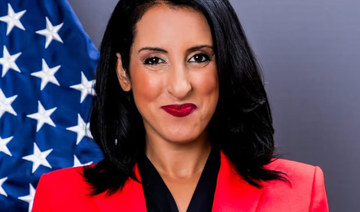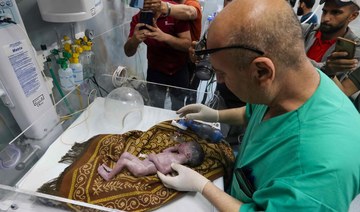ANKARA: Local elections held in Turkey on Sunday resulted in a significant shift in the governance of the country.
Voters in Turkey’s major cities turned their backs on officials from President Recep Tayyip Erdogan’s ruling party and instead opted for administration by candidates from opposition groups.
After a nail-biting count of votes in the first municipal ballot since Turks approved constitutional reform in 2017, the “prize” cities of Istanbul and the capital Ankara fell to rival parties.
As the Turkish saying goes, “whoever wins Istanbul, wins Turkey,” and when voters in Izmir — the country’s third-largest city, which is popular with Arab property investors — chose an opposition candidate for mayor, it marked a major change on the local political scene.
The ruling Justice and Development Party (AKP) and its nationalist coalition partner the MHP lost other authorities including the southern provinces of Antalya, Adana, Mersin and Hatay.
The local election results confirmed a change of mood among Turkish voters unhappy with the way the country has been governed and concerned about rising inflation and unemployment rates.
The outcome of the polls was also achieved in a country where almost 90 percent of the media is under government control, limiting publicity opportunities for opposition parties.
A recent survey by Istanbul’s prestigious Kadir Has University, revealed that unemployment, increased living costs and depreciation of the Turkish lira were the most significant problems facing Turkey.
In Ankara, where the government recently opened retail stores to sell fruit and vegetables at reduced prices in an apparent bid to woo low-income voters, an opposition figure will govern the city for the first time in 25 years.
The capital’s new mayor, Mansur Yavas, is known for his nationalistic roots and as a moderate character trying to reach out to every segment of society.
However, during his election campaign, prosecutors drafted an indictment against him on forgery charges. President Erdogan also warned that Ankara could “pay a heavy price” if Yavas was elected.
In southeastern Turkey, pro-Kurdish HDP won by a landslide, increasing its vote significantly since the last elections and gaining back all municipalities where the government had assigned trustees in place of elected mayors. HDP decided to give its support to the candidates of the opposition coalition in the west by not nominating any candidates in many metropolitan municipalities.
Experts believe Erdogan’s recent rhetoric and politics based on internal and external enemies, have paradoxically consolidated the opposition camp and pushed rival voters to go to the ballot box instead of boycotting it.
Sinan Ekim, a Turkey analyst at Rome-based Istituto Affari Internazionali, said the election results showed the resilience of Turkey’s democracy.
“The CHP’s success in Istanbul and Ankara, against the backdrop of massive corruption and a campaigning landscape that is entirely controlled by the government, is nothing short of historic,” he told Arab News.
“The fact that the CHP will now control 10 of Turkey’s 20 top municipalities in terms of GDP, shows how Turkey’s economic recession was a top concern for voters. The results also show a growing dissatisfaction among the younger generation, reacting to a lack of media freedom and lack of employment prospects,” Ekim added.
He said Erdogan’s strategy of religion-based electioneering had fallen flat with economic concerns taking precedence over religious identity.
Despite the apparent failure of his party in retaining key cities, the president made a balcony speech on Sunday night, saying “in some areas where they fell short, they weren’t able to communicate their message enough. We will begin to fix our faults beginning from tomorrow morning. We won’t fight with the nation.”
Although Erdogan’s speech was somewhat conciliatory in tone with him vowing to pay more attention to economic reforms, Ekim said the president’s unreadiness to admit defeat in Istanbul said otherwise.
With Turkey’s state-run news agency Anadolu stopping the flow of election data until Monday morning, the move was considered suspicious by some as it coincided with an equal vote share for two mayoral candidates in Istanbul.
“The government may demand a recount or a revote; or first accept the results and then remove opposition leaders from their positions down the line. The government’s final stance vis-a-vis the results will be telling in terms of the style of leadership that awaits Turkey until 2023,” Ekim said.
Turkey’s next elections will be in 2023 when Erdogan’s presidential term of office ends.
Ozgur Unluhisarcikli, Ankara office director at German Marshall Fund of the US, told Arab News: “Both the opposition parties and their social bases have learned how to deal with polarizing politics.”
The expert said the success of the Turkish opposition parties was partly down to nominating candidates that appealed to wider society, setting up a smart and inclusive alliance, giving positive messages, and avoiding confrontation.
“Their social base continued to post polarizing messages on social media, but less than they used to in past elections. I think Turkish politics is in a process of normalization and rebalancing,” he said.



